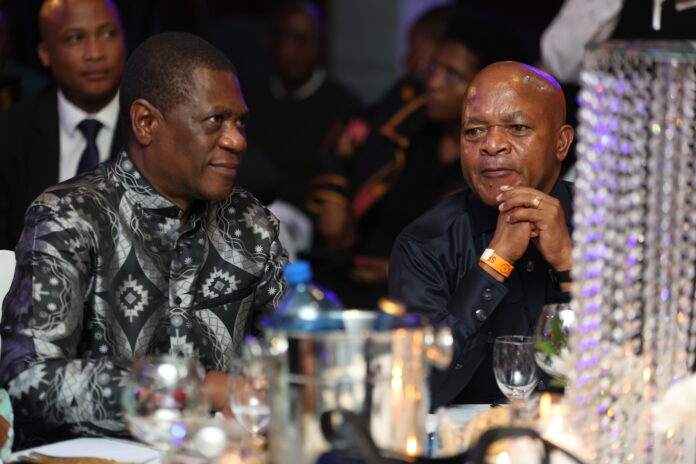The Black Business Council in the Built Environment (BBCBE), established in 2007, hosted the BBCBE Inaugural Build Environment Indaba 2024 on the 4th and 5th of April 2024. BBCBE represents black construction and professional organisations in the country. The BBCBE aimed to influence legislation in order to enable a better environment in the building and construction industry. Through the Built Environment Indaba, BBCBE highlights the importance of building a transformed built environment through collaboration, procurement, and skill development.
“I am pleased to join you this morning in your gathering, which is under the theme “BUILDING A TRANSFORMED BUILT ENVIRONMENT THROUGH COLLABORATION, PROCUREMENT, AND SKILLS DEVELOPMENT.” As a country, with less than 60 days before the end of the sixth administration, the discussion as you have themed it is timely and necessary. It is timely because it gives us an opportunity to pause and reflect on the journey that we have travelled in building a sustainable and growing built environment sector, as well as creating a transformed and inclusive sector,” says Hon. Maloko Kubayi, Minister of Human Settlement.
Maloko notes that our government is guided by a clause contained in the Freedom Charter that says, “There shall be houses, security, and comfort for all,” and it is for this reason that the ANC insisted that this 1955 vision be codified and enshrined in our Constitution of 1996. I just want to make it clear that it is the ANC and the government that it leads that have always been the champions of decent housing for all our citizens.
With the population increasing, the demand for housing will always be on the rise as more and more people look for shelter. What is of great interest for us as a sector is where, geographically, people want houses and what type of houses they want. In addition to access to economic opportunities and social amenities, there are important trends that have become dominant in determining the location and type of housing, namely, urbanisation, climate change, and innovation in alternative building technologies. Urbanisation has placed 60% of South Africans in major and secondary cities, which means that the demand for housing in urban centres has significantly increased. It therefore stands to reason that the infrastructure backlog that we find in housing is concentrated in urban centers, both in major and secondary cities.
As the built environment continues to grow, so do other factors such as skills development for people working within the industry, youth development for those aspiring to be part of the built environment, economic development for the country, and the participation of black businesses in public and private sector projects. It is vital for stakeholders to also be involved in the discussion on the government’s medium-term priorities, which will be articulated in the medium-term strategy framework and the five-year strategic agenda for South Africa.
“I have no doubt that your deliberations these days have come up with instructive solutions to our many challenges, especially when it relates to tackling the infrastructure backlog and accelerating transformation. I am looking forward to reading the outcomes,” Maloko concludes.

